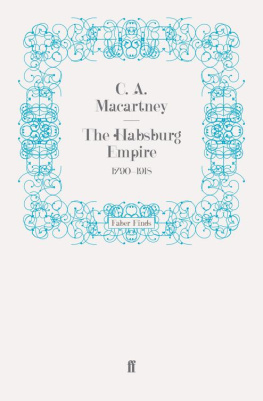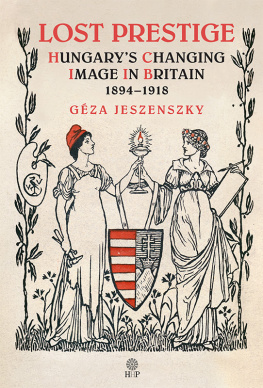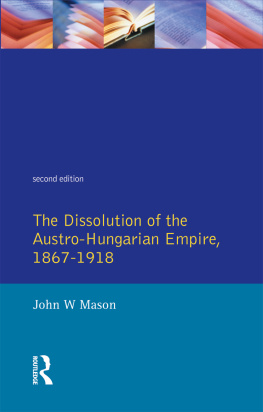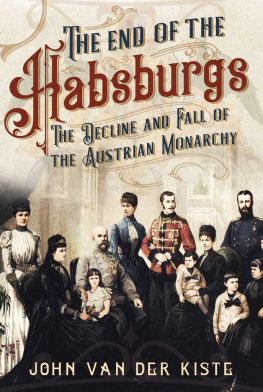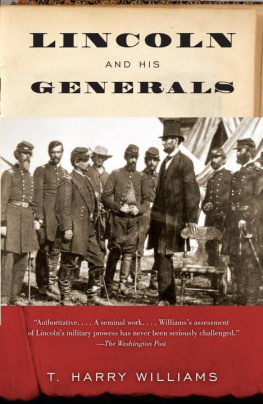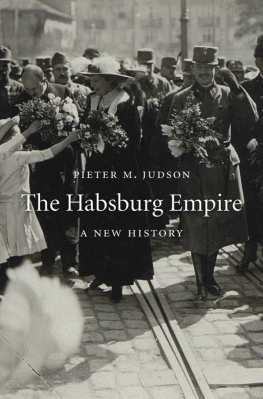C.A. Macartney - The Habsburg Empire, 1790-1918
Here you can read online C.A. Macartney - The Habsburg Empire, 1790-1918 full text of the book (entire story) in english for free. Download pdf and epub, get meaning, cover and reviews about this ebook. year: 1969, publisher: Weidenfeld and Nicolson, genre: History. Description of the work, (preface) as well as reviews are available. Best literature library LitArk.com created for fans of good reading and offers a wide selection of genres:
Romance novel
Science fiction
Adventure
Detective
Science
History
Home and family
Prose
Art
Politics
Computer
Non-fiction
Religion
Business
Children
Humor
Choose a favorite category and find really read worthwhile books. Enjoy immersion in the world of imagination, feel the emotions of the characters or learn something new for yourself, make an fascinating discovery.
- Book:The Habsburg Empire, 1790-1918
- Author:
- Publisher:Weidenfeld and Nicolson
- Genre:
- Year:1969
- Rating:3 / 5
- Favourites:Add to favourites
- Your mark:
- 60
- 1
- 2
- 3
- 4
- 5
The Habsburg Empire, 1790-1918: summary, description and annotation
We offer to read an annotation, description, summary or preface (depends on what the author of the book "The Habsburg Empire, 1790-1918" wrote himself). If you haven't found the necessary information about the book — write in the comments, we will try to find it.
The Habsburg Empire, 1790-1918 — read online for free the complete book (whole text) full work
Below is the text of the book, divided by pages. System saving the place of the last page read, allows you to conveniently read the book "The Habsburg Empire, 1790-1918" online for free, without having to search again every time where you left off. Put a bookmark, and you can go to the page where you finished reading at any time.
Font size:
Interval:
Bookmark:

What statesman inside or outside the Empire knows anything at all of the facts of Austria? It is a science in itself, nay, it is half a dozen sciences.
MR GRANT DUFF IN THE HOUSE OF COMMONS, 1869
MapsbyArthurBanks
When I was a very young man, just after the First World War had ended, I spent several years in Vienna. I became keenly interested in the past of the great Monarchy among whose still-smoking ruins I had arrived, and read up everything about it that I could get hold of. I found general histories going up to the mid-nineteenth century, and for the later period, some personal reminiscences, studies of particular episodes, and also histories of different provinces and nationalities. I also found essays on the weaknesses of the Monarchy which had led to its break-up, but I looked in vain for any adequate general history of the Monarchy telling in narrative form just how and why that break-up had occurred. When I was in Vienna, only one man Bibl attempted the task, and I could not regard his book as definitive, or even comprehensive.
I conceived the ambition of writing the story myself.
In 1925 (I think) I talked to the distinguished Austrian historian, A. F. Pribram, and told him of my ambition. I still remember his answer. Yes, we all start with that ambition. I did myself, but gave it up because I did not know fourteen languages.
I did not myself know anything like fourteen languages, and felt rebuked for my presumption. In any case, the enterprise would then have been premature, for as regards the latter part of the period in question, the flow of necessary material, primary works or secondary works on many special subjects, had hardly yet started. I put my ambition aside and waited for someone better qualified than myself to produce the book which I wanted to see.
But I have waited for forty years. So much material has appeared during those years that an attempt to write such a book as I had in mind would no longer be absurd. But the book of my vision has not yet appeared, and the prospect of its doing so in the foreseeable future seems actually to be receding, at least so far as the old Monarchys own historians are concerned. Even in the old days, no Czech, Pole or Magyar even made the motions of writing a history of the Monarchy as a whole: he simply described the sufferings of his own people in the Babylonian captivity of the Habsburgs. The present-day historians of those peoples seem to be adopting the same attitude, only more so. While the Monarchy still existed, its German or Germanized historians were often still able to take a less parochial view of its problems, and such great figures as Springer still wrote Gesammtmonarchisch history. But a change came as early as 1867: Charmatz and Kolmer are already not historians of the Monarchy, but of Cis-Leithania. If we except Luschin-Ebengreuth, who writes of institutions, it is fair to say that the last important work of the type which I have in mind to appear before 1918 was Friedjungs unfinished Austriafrom1848to 1860. Since then, Pribram and others have investigated the Monarchys foreign policy, Redlich and Walter have described its central institutions, and the modern German-Austrian historians have carried on their work with a brilliance and erudition with which I cannot hope to compete. But with the single exception of the venerable Kiszling (himself not an academic) they have, as soon as they have gone outside these central fields, adopted the particularist outlook of the other nationalities; what they write on domestic politics and social and economic developments relates simply to German Austria, with an occasional side-glance at Bohemia. The Hungarians are for them simply lstigeAuslnder, and one could hardly gather from their books that the Monarchy had ever contained Poles, Ruthenes, Roumanians or Southern Slavs.
But the tribal histories which the local historians of today are now producing cannot be completely satisfactory even for their own tribes, for the political, social and economic development of each people was bound up with and largely conditioned by that of the others, without some knowledge of which it does not even make sense.
They certainly do not meet all the requirements of the non-Austrian reader, unless he is a diplomatic historian pure and simple. If his interests are wider than this, he will want to know something of what went on in all parts of the Monarchy, who its peoples were, what were the differences between them, by what means and how far they settled those differences, how far and why they failed to do so, what were the cohesive forces which enabled the Monarchy to survive until 1918, and what the forces of disruption under which it collapsed in that year. And this Lebensfrage of the Monarchy apart, something of how its peoples lived.
A man who by virtue of his birth and education stands at a distance from the countries which once composed the old Monarchy finds it perhaps easier than do their natives to take a wide-angled view of the subject, but it is, of course, far more difficult for him to acquire the necessary factual knowledge (which will certainly not have been imparted to him at school) and the no less essential psychological understanding. Thus very few non-Austrians have even attempted any major work on the problem, and of these, only Professor A. J. May, in his HapsburgMonarchy,18671914, and his PassingoftheHapsburgMonarchy has thrown his net wide enough, and dredged deep enough, to meet the needs of those who seek for more than interpretations; and Mays work, which is truly admirable as far as it goes, covers only a fraction of the period.
So a gap is, in my opinion, still there, and I have, after all, set myself, not to fill it, but to put something into it. No one knows better than myself, how inadequately. I still do not know fourteen languages, and the flood of recent publications has been so copious, especially in the Iron Curtain countries, which have been rewriting their histories on principle, that the proportion of works which I have read to those which I ought to have read is probably lower today than it was forty years ago. But man cannot wait for ever, either on his own perfection, or on others, so I have decided to face the world with my effort, imperfect as I know it to be.
This, then, is a history of the Monarchy, the Monarchy as a whole, and the whole Monarchy during what I regard, for the reasons which I give in my introduction, as the second great phase of its history, 17901918. It is primarily a history of domestic developments. These were, of course, constantly and strongly affected by the state and development of the Monarchys international relations, but in dealing with these I have, out of considerations both of space and of my own lack of learning, omitted all details of diplomatic negotiations and military campaigns, confining myself to recording shortly the principal events and pointing out their influence on internal developments. The details omitted by me can in any case easily be found in many readily accessible works by specialist historians.
With more regret, but out of the same considerations, I have left out, except for the barest mention, all Kulturgeschichte proper, as distinct from literary, etc., activities which had their importance for the development of national movements. These sacrifices have left me more space, although still less than I should have wished, for the inner political, social, economic and national developments which I have taken as my main theme.
Font size:
Interval:
Bookmark:
Similar books «The Habsburg Empire, 1790-1918»
Look at similar books to The Habsburg Empire, 1790-1918. We have selected literature similar in name and meaning in the hope of providing readers with more options to find new, interesting, not yet read works.
Discussion, reviews of the book The Habsburg Empire, 1790-1918 and just readers' own opinions. Leave your comments, write what you think about the work, its meaning or the main characters. Specify what exactly you liked and what you didn't like, and why you think so.

